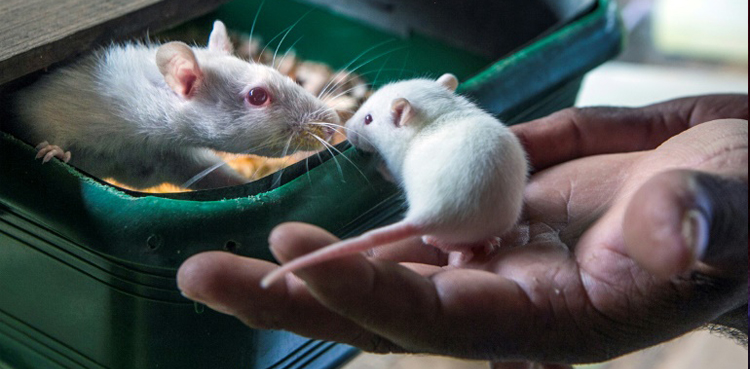Can diet help cancer treatment? Study in mice offers clues

Diet is already a key part of managing diseases like diabetes and hypertension, but new research adds to a growing body of evidence that it could help cancer treatment too.
The study, published Thursday in the journal Nature, found restricting intake of an amino acid found in red meat and eggs significantly enhanced cancer treatment in mice, slowing tumour growth.
“These are very strong effects, and they are effects that are as strong as we would see with drugs that work,” said lead researcher Jason Locasale, an associate professor at Duke University’s School of Medicine.
“What this study is showing is that there are many situations where a drug by itself doesn’t work, but if you combine the drug with the diet, it works. Or the radiation therapy doesn’t work well, but if you combine… with the diet, it works well,” he told AFP.
The study focused on restricting intake of the amino acid methionine, which is key to a process called one-carbon metabolism that helps cancer cells grow.
Methionine restriction has already been associated with both anti-aging and weight loss, but its importance to cancerous cells suggested it could also be a promising way to enhance cancer treatment.
‘Starving the cancer’
The researchers first tested methionine restriction in healthy mice to confirm it was having the desired effects on metabolism and then moved to testing it in mice with colorectal cancer and soft tissue tumours known as sarcomas.
They found that a low dose of chemotherapy, which on its own had no effect on colorectal cancer, led to “marked inhibition of tumour growth” when combined with methionine restriction.
Similarly, combining methionine restriction with radiation therapy in the case of the soft tissue sarcoma reduced tumour growth.
“You’re starving the cancer cells of certain nutrients, at a very basic level,” explained Locasale.
He cautioned that the results should not be extrapolated beyond the cancers tested so far, and that the research was far from being tested in humans.
“This is certainly not a be-all, end-all to cancer. This is not some panacea,” he said.
Independent experts also warned against reading too much into the study just yet.
“Before drawing any conclusions about the potential for dietary restriction as an approach to treating cancer, human studies are needed,” said Paul Pharoah, a professor of Cancer Epidemiology at the University of Cambridge.
‘Really exciting’
Locasale and his colleagues extended the research by testing a methionine-restricted diet in six healthy humans, and found that the effect on human metabolism appeared similar to that seen in mice.
That suggests that the diet could have a similar effect on certain tumours in humans, though Locasale warned it was far too early to draw any definitive conclusions.
And Tom Sanders, professor emeritus of nutrition and dietetics at King’s College London, warned that “there is no evidence from this study to suggest following a vegan diet will help patients with cancer.”
Locasale said he hoped to eventually test the research in humans with cancer, but noted that nutrition research often struggles for funding because it proposes treatments that are not obviously profitable.
Still, he said the work adds to a body of research that suggests diet may play an important role in cancer treatment.
Last year, a study showed one type of chemotherapy drug was more effective in combination with a diet low in sugar and high in protein and fat. Other cancers appear to be better combated in combination with low-sugar diets alone.
“Research like this can lead to studies in people,” said Justin Stebbing, professor of cancer medicine and oncology at Imperial College London.
“How dietary interventions influence cancer… is likely to be really important in years to come.”
Locasale agreed, calling the field a “really exciting area right now… where we’re seeing that diet has a huge effect on human health.”
He hopes for a future where doctors will eventually be able to advise cancer patients to follow specific diets to assist their treatment.
“We’re not there yet, but the goal is to eventually get there.”
The post Can diet help cancer treatment? Study in mice offers clues appeared first on ARYNEWS.
Comments
Post a Comment